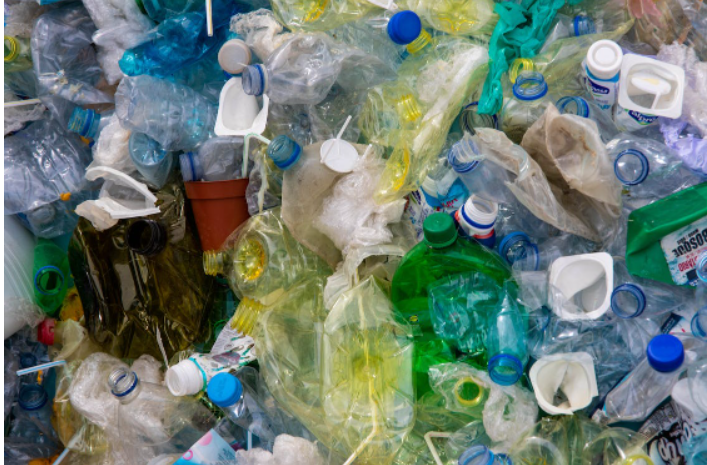An essay on plastic pollution explores the problem of plastic pollution, its causes, and its effects on the environment, wildlife, and human health. The essay aims to raise awareness about the issue of plastic pollution and to suggest possible solutions to address the problem.

Essay on plastic pollution (Sample)
I. Introduction
Plastic pollution refers to the accumulation of plastic materials in the environment, which pose a threat to human health, wildlife, and the ecosystem as a whole. The issue of plastic pollution is of great importance, given the extent to which plastics have become ubiquitous in our daily lives. This essay seeks to examine the causes and effects of plastic pollution and the potential solutions to the problem.
II. Causes of Plastic Pollution
A. Single-use plastics
Single-use plastics are a significant contributor to plastic pollution, as they are designed to be used once and then discarded. Items such as straws, bottles, and food packaging are commonly made from single-use plastics. Due to their convenience and affordability, these products are prevalent in our daily lives, and their widespread use has led to a significant increase in plastic waste. Single-use plastics are often discarded improperly, ending up in the environment, where they can take hundreds of years to break down.
Need a custom Essay on plastic pollution? Cheap Assignment Helper is here for you.
B. Improper waste management
Improper waste management is another significant cause of plastic pollution. Many countries lack proper waste management infrastructure, and as a result, plastic waste often ends up in the environment. Littering and illegal dumping are also common practices that contribute to plastic pollution. When plastic waste is not properly disposed of, it can enter waterways and oceans, where it poses a threat to marine life and ecosystems.
C. Industrial production of plastics
The industrial production of plastics is another significant cause of plastic pollution. The production process requires large amounts of fossil fuels and generates a significant amount of greenhouse gas emissions. Additionally, the production process releases pollutants and toxic chemicals into the environment, contributing to air and water pollution. The increasing demand for plastics has led to an increase in production, further exacerbating the problem of plastic pollution.
D. Lack of awareness and education
Finally, a lack of awareness and education is another contributing factor to plastic pollution. Many people are unaware of the impact of plastic pollution on the environment, wildlife, and human health. Additionally, there is a lack of education regarding proper waste management and recycling. Without education and awareness, people may not understand the importance of reducing plastic usage or properly disposing of plastic waste.
III. Effects of Plastic Pollution
The environmental effects of plastic pollution are numerous and severe. Plastic waste can harm wildlife through entanglement, ingestion, and habitat destruction. Additionally, plastic pollution can lead to the degradation of ecosystems and the disruption of the food chain. The health effects of plastic pollution are also a concern, as plastics contain toxic chemicals that can leach into the environment and harm human health. Finally, the economic effects of plastic pollution are significant, as the cost of cleaning up and managing plastic waste can be substantial.
IV. Solutions to Plastic Pollution
A. Reduce plastic usage
One of the most effective ways to address plastic pollution is to reduce the amount of plastic that is produced and consumed. This can be achieved through the promotion of alternatives to single-use plastics, such as reusable bags, water bottles, and food containers. Encouraging the use of refillable products and adopting a zero-waste lifestyle can also help reduce plastic consumption.
B. Proper waste management
Proper waste management is crucial in preventing plastic waste from entering the environment. Governments and municipalities can promote proper waste management by establishing effective recycling programs, increasing access to recycling facilities, and imposing fines for littering and illegal dumping. Additionally, businesses can implement sustainable waste management practices, such as reducing packaging materials and properly disposing of waste.
C. Promote recycling and circular economy
Recycling is an essential component of addressing plastic pollution. By recycling plastic, we can reduce the amount of waste that ends up in the environment and conserve resources. Promoting a circular economy, where materials are reused and recycled, can also help reduce the demand for new plastic products. Governments and businesses can support recycling by investing in recycling infrastructure, promoting the use of recycled materials in products, and incentivizing consumers to recycle.
D. Government policies and regulations
Government policies and regulations can play a significant role in addressing plastic pollution. Governments can impose taxes on plastic products, ban single-use plastics, and incentivize businesses to adopt sustainable practices. Additionally, policies can be put in place to promote the use of reusable products, increase the use of recycled materials, and fund research and development of alternative materials to plastic.
V. Conclusion
Plastic pollution is a significant environmental problem that requires urgent action. The causes of plastic pollution are multifaceted, and the effects of plastic pollution are severe. However, there are solutions available that can help address the problem, including reducing plastic usage, proper waste management, recycling, and government policies and regulations. By taking action, we can help reduce the impact of plastic pollution on our planet and create a more sustainable future for all.